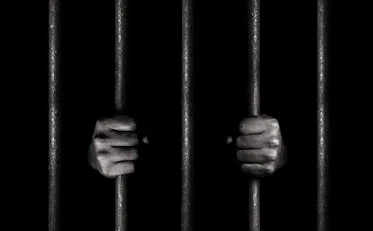"I meditate on injustice and pain all day, every day, because that's where I always am. I'm burning in hell on earth."
6.11.25
3.11.25
1.11.25
30.8.25
Reality
14.8.25
10.8.25
My constant companion
4.8.25
20.7.25
Melancholia
There’s a certain kind of sadness that doesn’t shout. It doesn’t scream or cry out for help. It’s the kind of sadness that sits beside you like an old, familiar friend, whispering nothing at all. The pit of despair, where no one can hear you scream.
The untouched coffee.
The unwashed hair.
That sinking feeling caught in the pit of your chest and throat.
It’s waking up and immediately yearning to go back to sleep, not out of tiredness, but because consciousness feels like a burden. It’s the aching quiet of being alone
Melancholia doesn’t come with reasons that make sense. It drifts in on a cloudy morning, settles like dust on your things. It makes everything feel boring. Like the colors have dulled. Like your memories are wrapped in fog. Even joy feels like it’s echoing from a place too far away to reach.
You won’t stay here forever. The sky does clear. It always will
"In that dark place, there's no such thing as optimism."
31.3.25
The ugly truth
23.3.25
Destined to fail - the lower end of the food chain
18.3.25
8.3.25
Mercy Killing
Euthanasia, often termed "mercy killing," is the act of intentionally ending a person's life to alleviate intractable suffering. This topic intertwines deeply with ethics, law, medicine, and personal beliefs, sparking diverse perspectives worldwide.
Proponents argue that euthanasia respects individual autonomy, allowing those with terminal illnesses to choose a dignified end, free from prolonged pain. Philosopher Peter Singer posits that the right to life is intrinsically linked to one's capacity to hold preferences; thus, a competent individual's choice to end their suffering should be honored.
The legality of euthanasia varies:
-
Australia: All six states have legalized voluntary assisted dying (VAD) under strict eligibility criteria, including terminal illness with intolerable suffering. The Northern Territory briefly permitted euthanasia in 1996 but was overridden by federal law in 1997. However, the Restoring Territory Rights Act 2022 has reinstated the territories' ability to legislate on this matter.
-
Canada: Legalized euthanasia in 2016 for adults with grievous and irremediable medical conditions. The law expanded in 2021 to include non-terminal conditions, prompting debates about societal implications.
-
Netherlands and Belgium: Among the first to legalize euthanasia, allowing it under stringent conditions, including unbearable suffering without prospect of improvement.
Technological advancements have introduced devices like the Sarco pod, designed for assisted suicide without medical intervention. Its use in Switzerland has ignited global debates on ethics and regulation.
Euthanasia remains a multifaceted issue, balancing compassion for those suffering and the ethical duty to protect life. As societies evolve, continuous dialogue is essential to navigate the moral, legal, and personal dimensions of this profound topic.
16.2.25
A Journey Through Life's Wraith
24.1.25
21.1.25
22.11.24
A Personal Journey of Alienation and Isolation
For the past 12 years, I've navigated the challenging waters of persistent anxiety and personality disorders. This journey has been marked by awkward conversational experiences, a constant feeling of not meeting societal expectations in etiquette, and a profound sense of alienation from the world around me. Reliving past traumas and anticipating future ones have become daily hurdles, often accompanied by an overwhelming sense of impending doom. Isolation and detachment have not just been feelings but have shaped the very fabric of my existence.
Traumatic experiences from the past don't stay confined to memories:
Unwanted recollections that feel vividly real. Constantly being on the lookout for potential threats. Steering clear of places, people, or situations that might trigger memories.
The anticipation of trauma reoccurring creates a perpetual state of fear and apprehension.
This sense of impending doom can be paralyzing, making it difficult to engage with the world.
Over time, these struggles have led to increasing isolation.
Isolation becomes both a refuge and a prison, providing temporary relief but exacerbating feelings of loneliness.
14.11.24
2.11.24
-
Jack Kevorkian
-
I refuse to accept life or death as they are presented. I will not be a part of the unjust system that underlies our existence. I stand agai...






